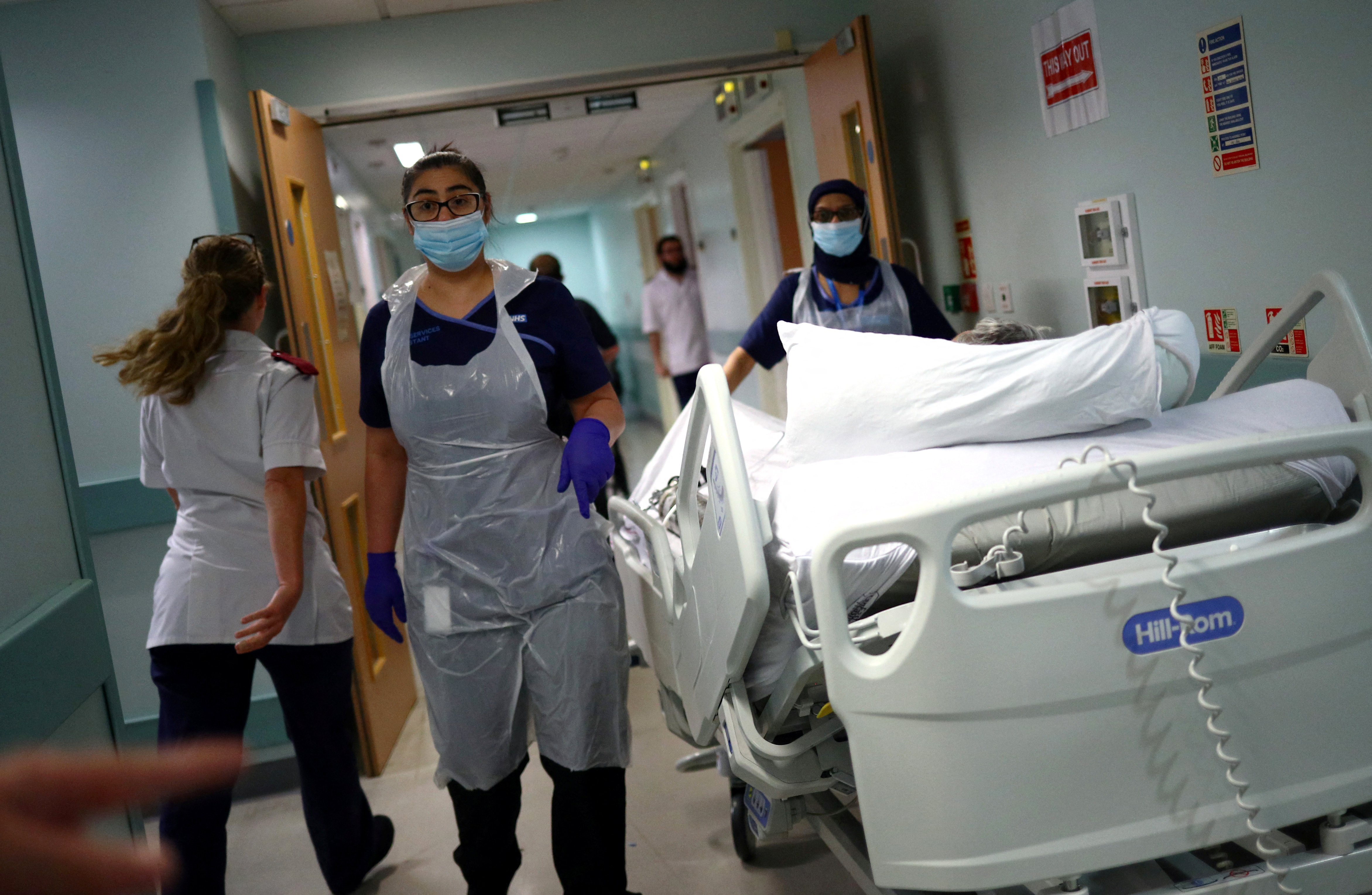Patients are missing out on new drugs as the NHS cuts trials
Patients are missing out on the latest drugs because the stretched NHS is struggling to carry out vital research, the head of Britain’s biggest charity has warned.
John-Arne Rottingen, chief executive of the Wellcome Trust, which invests more than a billion pounds in UK research each year, said the fall in the number of commercial clinical trials would directly affect the care of thousands .
Rottingen said the “constrained NHS” meant drug companies “decided to go elsewhere”. He said: “This will mean that patients will have less opportunity to benefit from being part of clinical research and will have less access to new breakthrough treatments, which will affect their chance for recovery and treatment.”
He said the NHS was key an asset for research but that power was waning because it was struggling to maintain its ability to conduct clinical trials. “We are seeing the number of academically qualified consultants falling, and the number of consultants who can carry out research as part of their service in the NHS and the system is falling,” he said. “It is a matter of great concern to the UK medical sector that it is becoming increasingly difficult to find medical professionals.”
Rottingen, 55, who is Norwegian and holds degrees from Oxford, Harvard and Oslo universities, says British universities are also facing major challenges. The twin problems in the NHS and universities, as well as overseas scientists coming to the UK, were putting Britain’s position as a world leader in research at risk, he said. He asked the government to intervene, warning that universities may start to be closed if no action is taken.
The University and College Union held talks with Bridget Phillipson, the education secretary, last month after the Office for Students, the higher education regulator, said 40 per cent of universities would face funding cuts. .
More than a million patients take part in clinical research each year but numbers enrolled in commercially funded clinical trials, in which effective drugs are widely distributed for the first time, are falling.

John-Arne Rottingen, the new head of the Wellcome Trust, says Britain’s position as a world leader in research is under threat.
TIMES ARTIST RICHARD POHLE
In another high-profile example, the Swiss pharmaceutical giant Novartis announced in March last year that it was canceling a trial of a cholesterol injection, which had taken place on the NHS, which would have affected some patients. some 40,000.
More than 50,000 took part in industry-led trials in 2017-18 but this has fallen by 44 per cent to 28,193 in 2021-22, according to the Association of the British Pharmaceutical Industry. Giving patients the opportunity to participate in a trial gives them access to drugs they would otherwise not have access to, which can prolong their lives. In 2010, one in six patients with newly diagnosed cancer participated in a clinical trial.
In terms of the number of clinical trials started, the UK has dropped from fourth to tenth in other countries, with drug companies choosing countries such as Spain and Australia.
The Wellcome Trust, which is expected to spend 16 billion dollars over the next decade on medical research, was founded in 1936 with the approval of industrialist Sir Henry Wellcome. Its net worth is 38 billion, which makes it the third largest charitable foundation in the world, behind the Bill and Melinda Gates Foundation and the Novo Nordisk Foundation. It supports 3,100 projects in 119 countries but continues to spend two-thirds of its budget in the UK, where it has more than 1,000 employees.
• Bill Gates: If you don’t like what I’m doing, donate your money too
The fact that Wes Streeting, the health secretary, has described the NHS as “broken”, said Rottingen, “shows a politician who is willing to focus on fixing the system”.
He added: “Research needs to be a very integrated part of reforming the NHS because a system built on evidence, knowledge and innovation will deliver better care for patients and to provide better health outcomes. It will cost more, but it will be worth it.”
The immigration policy, he said, needs to be addressed, warning that a serious obstacle is caused by the high cost of visas and the increase in the NHS surcharge, which is paid by any foreign worker. who is coming to the UK for longer than six months to help raise money for. health services. This rose in February from £624 to £1,035 a year.
The Royal Society said that the initial cost of a visa to come to the UK is 17 times higher than the international average. “For a postdoctoral researcher with a family these are very high costs,” said Rottingen. “That causes disruption, so there has to be a way to reduce costs or find ways to pay for them.”

A system built on evidence, knowledge and innovation will provide better care for patients, says Rottingen
HANNAH MCKAY/AFP
Rottingen, who arrived at Oxford in 1999 for the infectious disease epidemic, said UK universities were “caught in a trap” where they relied too much on fees from overseas students to support students. they are homeschoolers.
While that system kept universities afloat in the pre-Brexit period, the decline in overseas applications in recent years, from Europe and elsewhere, has left them struggling. “The exchange of grants is not a sustainable way to have financially stable universities in the long term. In the long run, it will undermine the quality. We know that some universities are struggling at the moment,” he said so.
When asked if universities could start closing, he replied: “That could be the result, for sure.”
NHS England says it is working to increase the number of commercial trials supported by the National Center for Health and Care Research. This resulted in 1,757 tests in 2022-23 compared to 1,523 in 2018-19, an increase of 234.
#Patients #missing #drugs #NHS #cuts #trials
